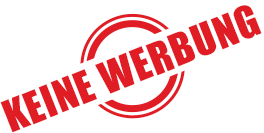Our business is subject to the risks of earthquakes, fire, floods, pandemics and other natural catastrophic events, and to interruption by man-made problems such as power disruptions, computer viruses, data security breaches or terrorism.
A significant natural disaster, such as an earthquake, fire, flood or pandemic, occurring at one of our headquarters, at one of our other facilities or where a business partner is located could adversely affect our business, operating results and financial condition. Further, if a natural disaster or man-made problem were to affect our service providers, this could adversely affect the ability of our customers to use our products and platform. In addition, natural disasters and acts of terrorism could cause disruptions in our or our customers’ businesses, national economies or the world economy as a whole. We also rely on our network and third-party infrastructure and enterprise applications and internal technology systems for our engineering, sales and marketing, and operating activities. Although we maintain incident management and disaster response plans, in the event of a major disruption caused by a natural disaster or man-made problem, we may be unable to continue our operations and may endure system interruptions, reputational harm, delays in our development activities, lengthy interruptions in service, breaches of data security and loss of critical data, any of which could adversely affect our business, operating results and financial condition.
In addition, computer malware, viruses and computer hacking, fraudulent use attempts and phishing attacks have become more prevalent in our industry, have occurred on our platform and have impacted some of our services providers in the past and may occur on our platform in the future. Any failure to maintain performance, reliability, security, integrity and availability of our products and technical infrastructure, including third-party infrastructure and services upon which we rely, may give rise to litigation, consumer protection actions, or harm to our reputation, and as a result, may hinder our ability to retain existing customers and attract new customers.
Risks Related to Our BOPET Film Business
A significant portion of revenue generated from our BOPET Film business is derived from the flexible packaging industry and electronics industry in the PRC; our revenue might be adversely impacted if the flexible packaging industry and electronics industry are adversely affected.
Our BOPET films are mainly used in the flexible packaging industry for consumer products such as tobacco packaging, alcoholic beverages, food, cosmetics, PCB industry, and so on. The demand for our BOPET films is therefore affected by the demand for flexible packaging and the electronics industry. Since the second half of 2011, supply has significantly outweighed demand in China. If this trend continues in the future, such as the continued slowdown of the market demand, or the increase of the demand continues to be less than that of the supply, it could continue to have an adverse impact on our financial condition and operation of our business.
Our acquisition of ownership of our main productive assets of the BOPET Film business is subject to litigation and dispute.
On September 24, 2004, the People’s Court of Weifang declared Shandong Neo-Luck bankrupt due to its financial difficulties. Shandong Neo-Luck pledged its main assets for the operation of the DMT production line to Weifang Commercial Bank before its bankruptcy.
The pledged DMT production line was auctioned on October 22, 2004, by the Shandong Neo-Luck Clearance Committee. DMT subsequently sought monetary damages from Shandong Neo-Luck for approximately US$1.25 million plus interest relating to a claim of partial non-payment for the DMT production line by way of application of the ICC arbitration; the hearing was held in Geneva in November 2007. Fuwei Shandong joined these discussions later as an interested party, in order to support a resolution of the pending dispute, and to achieve the resolution of certain outstanding service and spare part issues. All parties entered into a Settlement Agreement in March 2008, and the arbitration was withdrawn by the ICC. Under the Service Agreement entered into in connection with the Settlement Agreement, Shandong Fuwei would pay an amount of US$180,000 in two installments with respect to service and spare parts. The Company made its first payment in April 2008. As of December 31, 2021, Shandong Fuwei had paid US$135,000 and still owed US$45,000.
Under the Settlement Agreement, the Neoluck Group was obligated to pay an amount equal to US$900,000 in RMB by delivery of a bank draft to DMT. In April 2008, the Neoluck Group had not performed its obligation under the Settlement Agreement, and, the Neoluck Group and DMT entered into a Supplemental Agreement pursuant to which the Neoluck Group would pay the amount owed to DMT in two installments. The Neoluck Group paid the first installment equal to US$450,000 in April 2008. As agreed between Neoluck Group and DMT, the remaining US$450,000 was to be paid in installments by the end of December 2008. As of December 31, 2021, Neoluck Group had paid US$320,000 and still owed US$130,000 to DMT.

